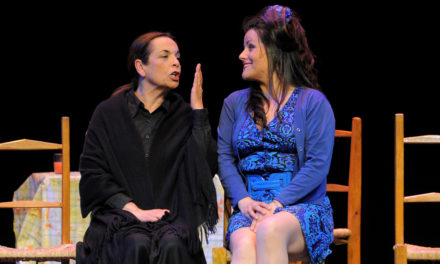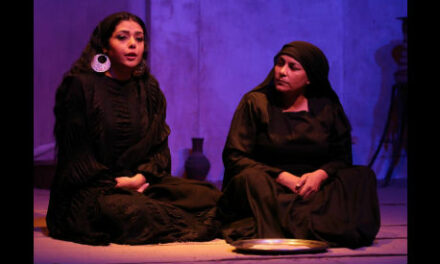Since 2007, the year of the 300th anniversary of the birth of Carlo Goldoni (1707–1793), Ghislieri College–one of the oldest and most prestigious university colleges in Italy–has celebrated this famous pupil with “Goldoni Day.” The great Venetian playwright discovered his theatrical vocation while he was a student in Pavia, from 1723 to 1725, and his emblematic description of that period is found in his Memoirs. This is not only an autobiography: we can consider it one of the most important works of the eighteenth century, with a particular fortune on the stage due to its several adaptations for theatre.
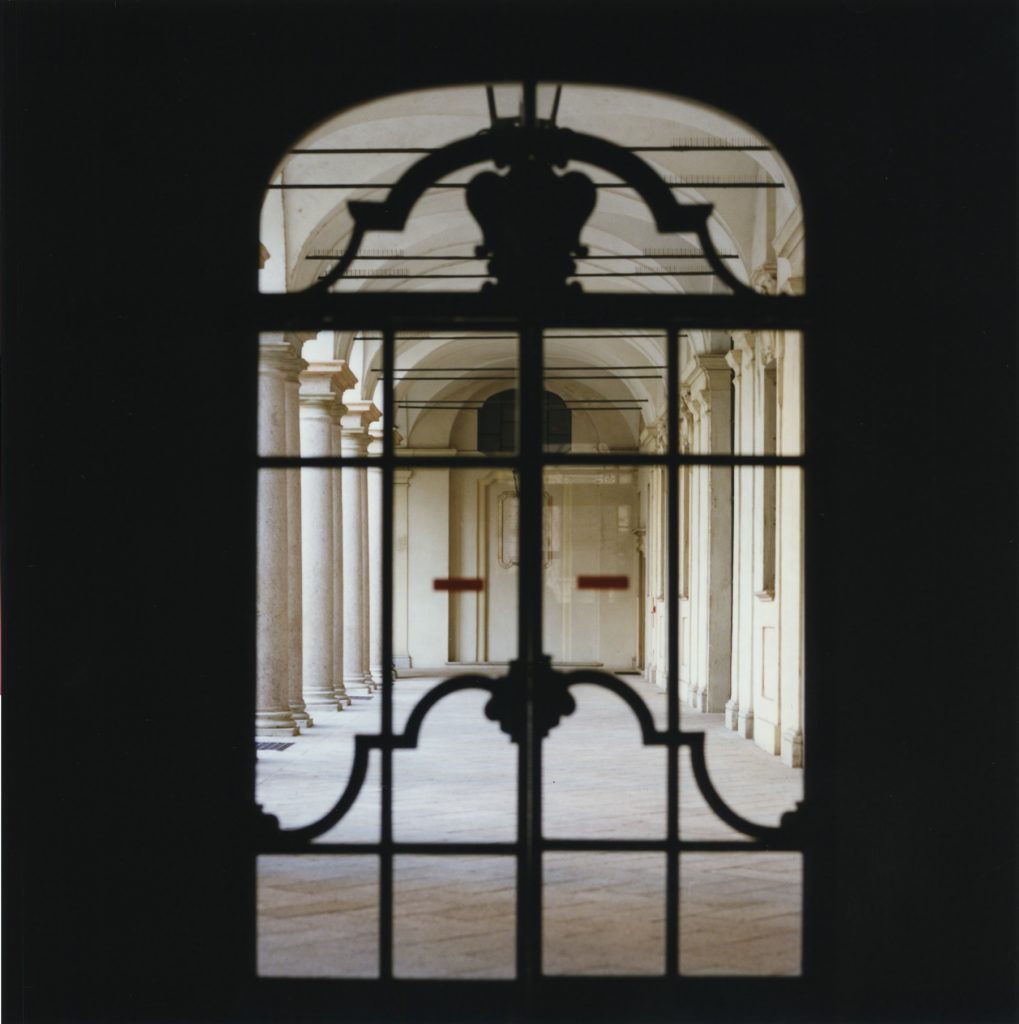
The colonnade of Ghislieri College. Image courtesy of Ghislieri College Archive, Pavia.
Goldoni had a special ability to portray human characters and situations, and this is the secret of the long success of his comedies: with his deep humanity, he described universal emotions in ways that make them always current and fascinating–even in the new millennium. He used the same technique, based on clarity and precision, in his Memoirs: he is the absolute protagonist, with his ambitions and his failures, in Theatre and in Life. He lived in many Italian towns and then in Paris, and he met a lot of people from many different backgrounds: aristocrats, the bourgeoisie, artists and common people–considering all with respect and curiosity.
Goldoni led an exceptional life because he was an exceptional man. He was conscious of his talent and had the courage to embrace his theatrical dream: when he abandoned his boring work as a lawyer, he definitively closed a chapter of his existence which was dominated by a sense of duty but which lacked a real taste for life. He wrote his Memoirs in Paris, in the last years of his life, and the retrospective narration is another aspect of the work that is relevant to understanding both the strength of his decision and its consequences. Goldoni had nothing to repent and, even in his old age, admitted that Theatre was the real meaning of his life–the source of his intimate happiness and complete realization.
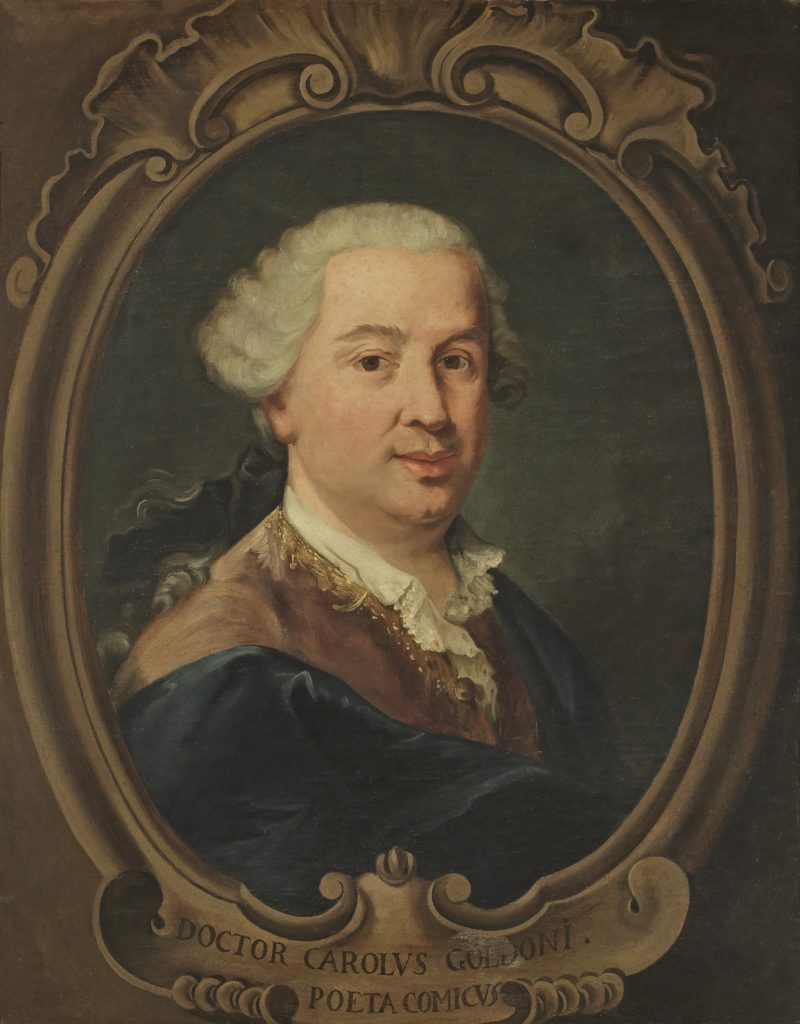
Portrait of Carlo Goldoni held at Ghislieri College. Image courtesy of Ghislieri College Archive, Pavia.
This year, “Goldoni Day” is enriched by a national premiere based on Memoirs: the stage reading entitled Il Dilettevol Viaggio Del Signor Goldoni (The Delightful Journey Of Mr. Goldoni), with the actors Ruggero Dondi and Marta Comerio. The original music is written by the composer Johannes Bickler.
Goldoni’s humanity, irony, melancholy, sweetness, and theatrical fury are the leading elements of the interpretation by Ruggero Dondi, an appreciated actor with a long career that began at the Piccolo Teatro in Milan. He has worked with the most famous Italian directors (including Giorgio Strehler, Massimo Castri, Egisto Marcucci, Elio De Capitani, Carmelo Rifici, Leo Muscato, and Andrée Ruth Shammah) and has had a relevant collaboration with Dario Fo and Franca Rame.
Marta Comerio is a pupil of Giorgio Strehler and has performed in several productions of the Piccolo Teatro in Milan with important international directors (including Anatoly Vasiliev, Stéphane Braunschweig, and Stefano De Luca). She also has a notable career in the Italian movie industry, working with many film directors (including Francesca Comencini, Alessandro D’Alatri, Francesca Archibugi, Maurizio Nichetti, and Alina Marazzi). She won the Best Actress award at several editions of the Italian International Radio Festival and other awards for best female interpretation.
With Il Dilettevol Viaggio Del Signor Goldoni, Marta Comerio and Ruggero Dondi also pay tribute to Giorgio Strehler on the 20th anniversary of his death (1997–2017): the great director had planned to produce a staging based on Goldoni’s Memoirs, considering his comedies and his theatrical revolution in a new autobiographical perspective for audiences. Unfortunately, after many years of work (he also considered serializing Memoirs for TV), this project remained unrealized. But the lesson of art remains, and it remains true for the theatre of the new millennium.
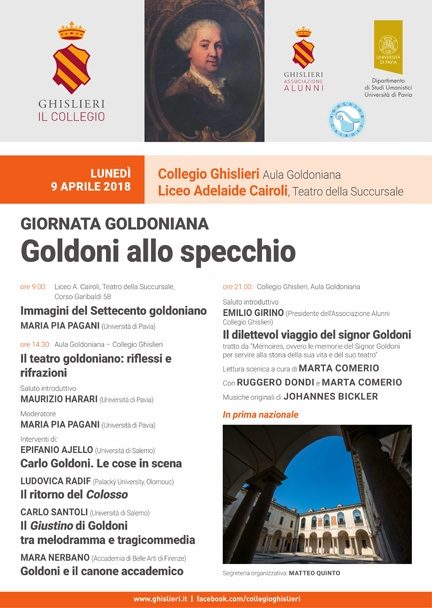
Goldoni Day 2018. Poster.
This post was written by the author in their personal capacity.The opinions expressed in this article are the author’s own and do not reflect the view of The Theatre Times, their staff or collaborators.
This post was written by Maria Pia Pagani.
The views expressed here belong to the author and do not necessarily reflect our views and opinions.




